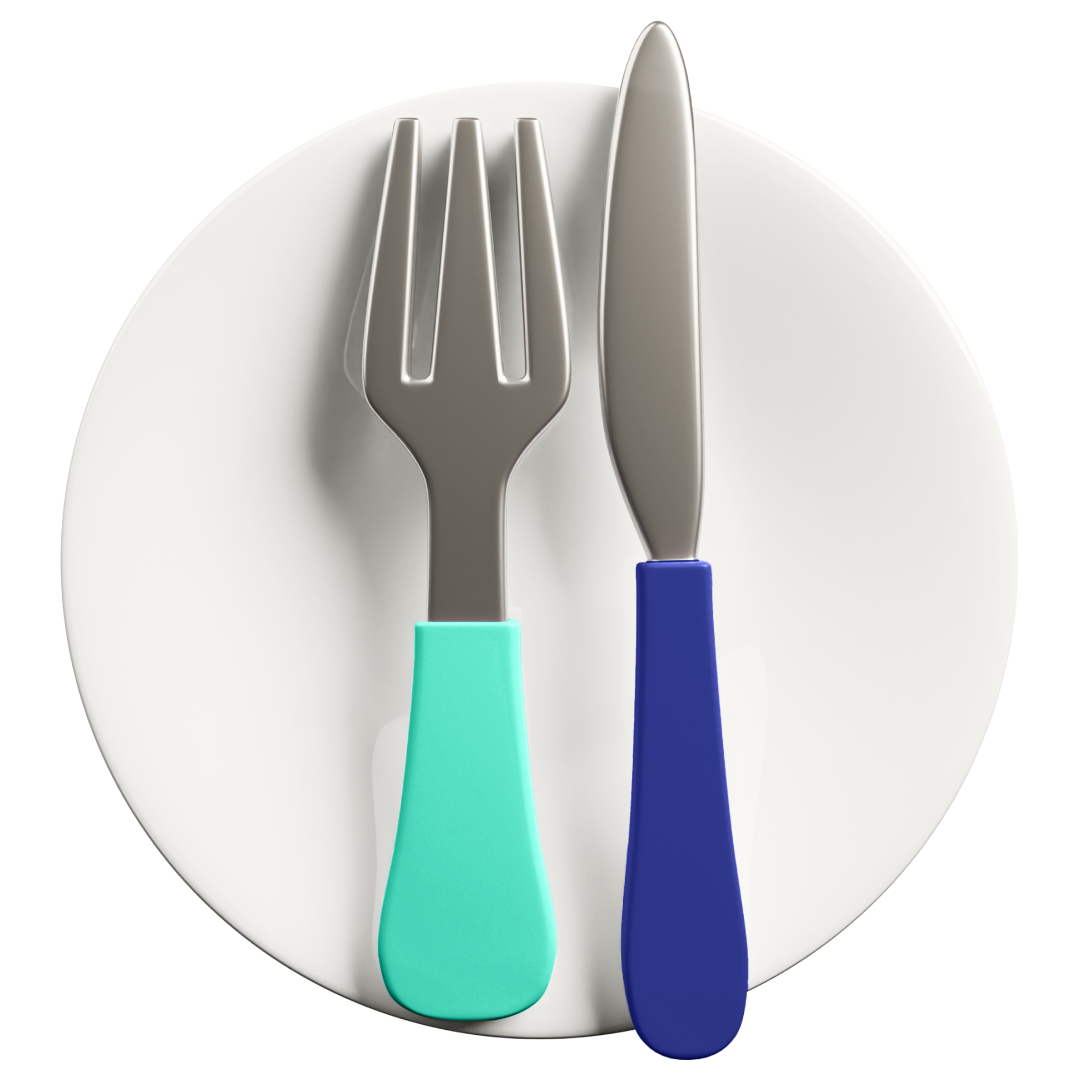
On a busy Saturday afternoon at Jan Paukert Lahůdkářství, shoppers with baguettes poking from their grocery totes sampled imported cheese, tourists milled around the confectionery counter, and customers who likely experienced the heyday of the original delicatessen (est. 1916) firsthand ordered up salads of ham bound with plenty of mayo, and fish suspended in aspic.
The store´s namesake pioneered the lahůdky phenomenon in Prague, as well as the import of gourmet foodstuffs, serving luminaries of the First Republic including T.G. Masaryk. But Jan Paukert´s greatest contribution to Czech culture was the invention of that diminutive darling of the celebratory spread, the chlebíčky. Marketing manager Jakub Vaněček says that it all began with a starving artist.
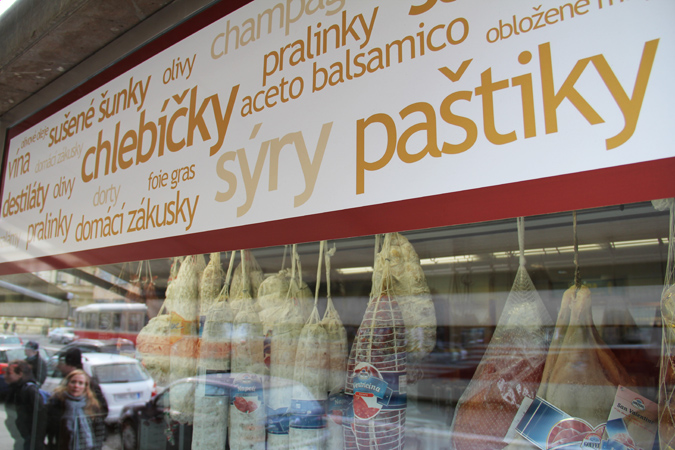
“Czech Painter Jan Skramlík, indisposed on a ladder at the time, asked Mr. Paukert to prepare a snack that would fit into his hand.” The original open-faced sandwich allegedly featured Swiss cheese, Hungarian salami, and a “domestic” mayonnaise, invented by Paukert, the recipe for which died along with its creator in 2010.
Paukert continued feeding Praguers until 1952 when the family was stripped of its business under nationalization. Yet the name was so redolent of quality deli fare that locals continued to call the Národní Street shop, U Paukertu.
The strength of that legacy has sparked the success of its newest incarnation, owned by the Le Terroir Group who, having leased space as well as the name, re-opened the store in 2008. “The concept upon re-opening was not only to offer an assortment of gourmet goods for purchase but also a variety of fresh, homemade salads, sandwiches and desserts under one roof,” says Vaněček.
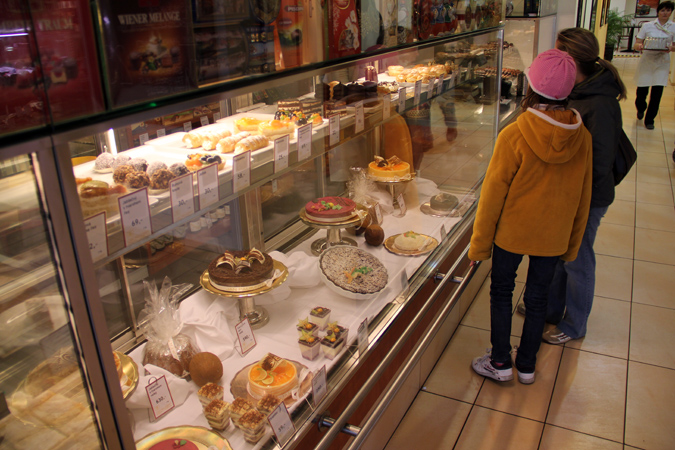
Indeed at Jan Paukert one can partake in a panorama of Czech cuisine: the aforementioned deli counter (lahůdky), a sweet shop (cukrárna), and a cafeteria (jídelna) serving full meals and alcohol.
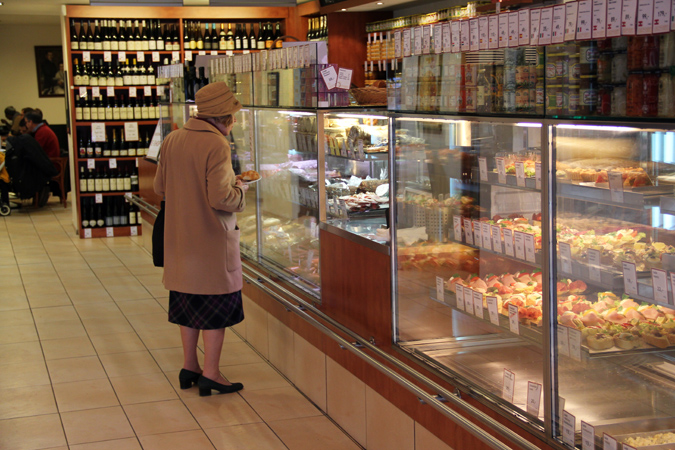
But in a rising European capital that´s awash with fancy preserves and French wines, how does Jan Paukert stand up as specialty food shop?
Prized cognac collection
On a recent weekend visit, polished glass cases containing bottles of armagnac and cognac immediately caught our eye. The wide selection of French brandy carries on the tradition of the original shop. “Mr. Paukert hid a number of 19th-century bottles of cognac from the Nazis,” says Vaněček, “His son unearthed them after restitution.” Labels include Bas Armagnac Vaghi, Hennessey XO, and Baron de Sigognac; prices range from modest (650 CZK) to shocking (40,000 CZK).
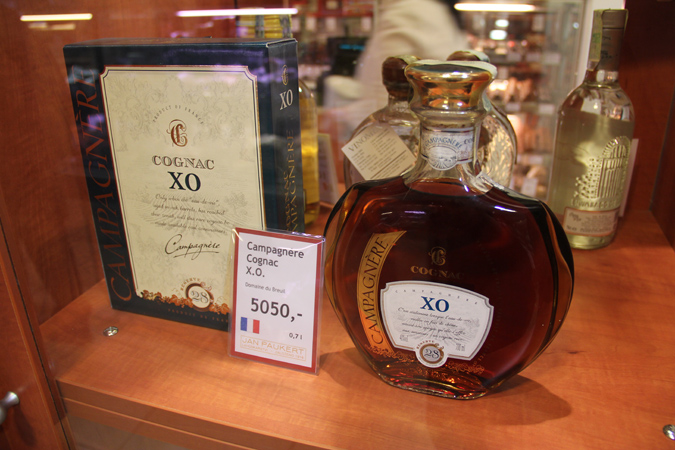
French influence strong
The Francophile will be at home here among the Champagnes, including a Paukert-label sekt produced in Baumard (390 CZK) Drappier Carte d´ Or (1,350 CZK), cider from Brittany (130 CZK), and Loire and Rhône Valley wines (650 CZK and up). Sommeliers are on hand to suggest pairings with various delicacies (foie gras, caviar, confit, olives) and cheese.
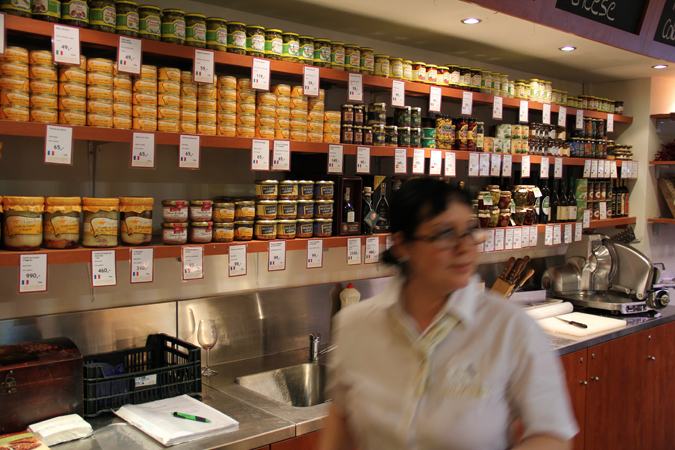
Small, varied selection of cheeses
Though by no means exhaustive, the selection at Jan Paukert is good, especially if you´re easily overwhelmed by choice. Of those we sampled, the best-selling Ossau Iraty, a nutty sheep´s cheese from the French Pyrénées (79 CZK/100 g) stood out, as did the soft, ripe Munster (87 CZK/100 g), musky Comté (79 CZK/100 g), and tangy Spanish Manchego (79 CZK/100 g). Predominantly French, the offerings also included an Italian Parmigiano-Reggiano (73 CZK/100 g) which ended up in our soup later that weekend. Many of the cheeses were pre-sliced, weighed, and packaged for ease of shopping, but when we asked for a lesser quantity – English is spoken – the woman behind the counter got a little prickly, reminding me that despite the fact we were shopping for French cheese, we were still in a Czech shop.
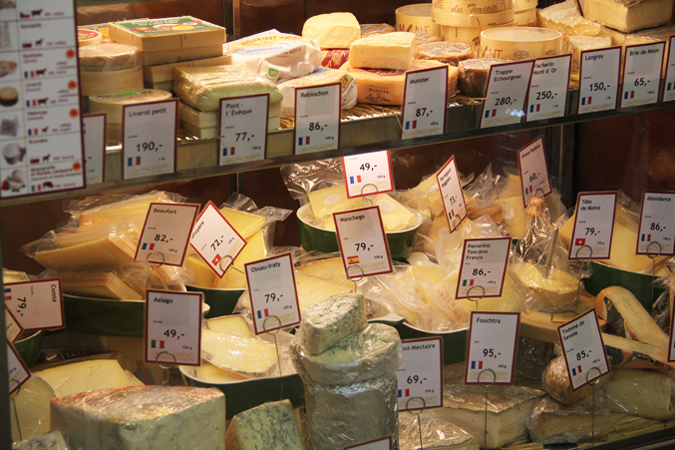
Exclusive European imports
Vaněček, when pressed for favorites, mentions the store´s modest selection of charcuterie. “We have several varieties of Italian prosciutto and salami, and Spanish jamon Serrano from an exclusive supplier.” (Czech cold cuts, salami, klobasa, and sausages are also in ample supply. One particular throwback to the days of yore, horse salami, was, though not entirely unpleasant, oddly sweet.)
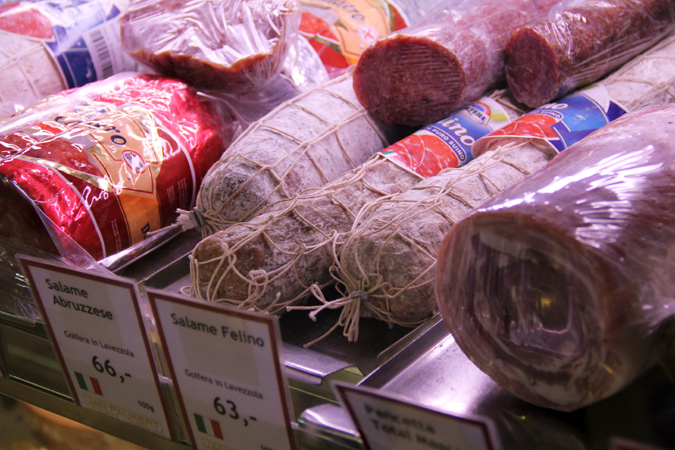
Handcrafted truffles and pralines from German Confiserie Lauenstein, ordered à la carte and packed in dainty gold boxes, are also a Vaněček pick. “These are exclusive to our store,” he adds.
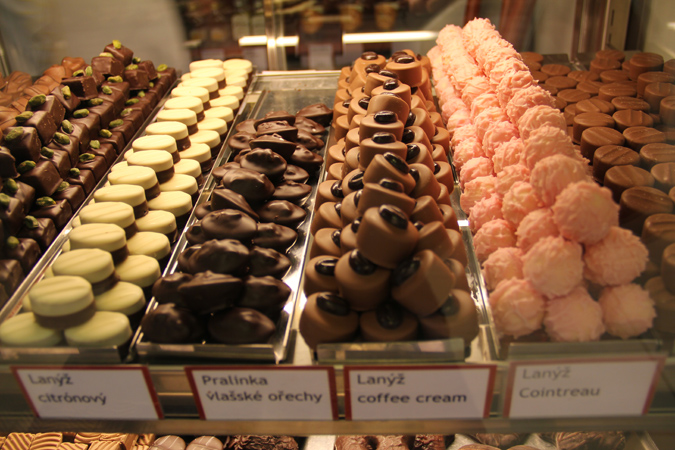
Set apart by Paukert label, Czech goods
Jan Paukert distinguishes itself with upscale versions of Czech specialties, decoratively packaged and bearing the Paukert name. Jars of utopenec (95 CZK) and paštika (95 CZK), made in-house, may not be extraordinary but make nice gifts. Fresh loaves of herbed Karlovarský knedlík (45 CZK/piece) can be purchased for cooking at home, as we did. Jan Paukert is also one of the few stores in Prague where you can buy St. Antoine´s craft absinthe and other Czech-made spirits from Boršice u Blatnice-based distillery Žufánek.
Chlebíčky for beginners
While you´ll have no trouble tracking down pink Champagne biscuits, English jams, truffle butter, Burgundy mustard, and other shopping-list splurges here, it´s nearly impossible to visit such a venerable institution without sampling its claim to fame. Jan Paukert is the ideal place to take chlebíčky beginners.
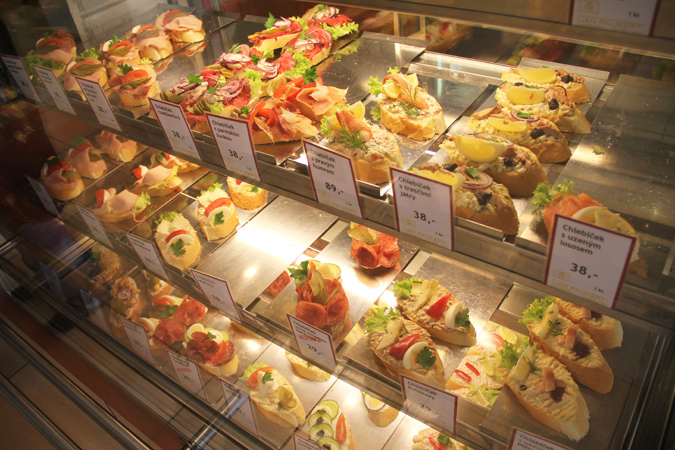
The bread is soft, crusty, and cut at an angle; mayoless offerings like roast beef and marinated zucchini (38 CZK) and prosciutto and green olives (38 CZK) are a nice alternative to the classic variety.
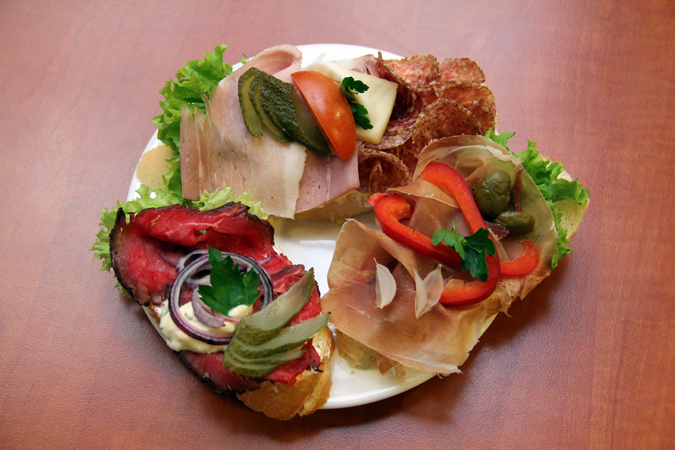
Jan Paukert is a faded aristocrat of a Czech delicatessen and gourmet shop, a genteel, if slightly dated establishment that serves best as a place to sit down to Czech comfort food or buy an elegant gift.
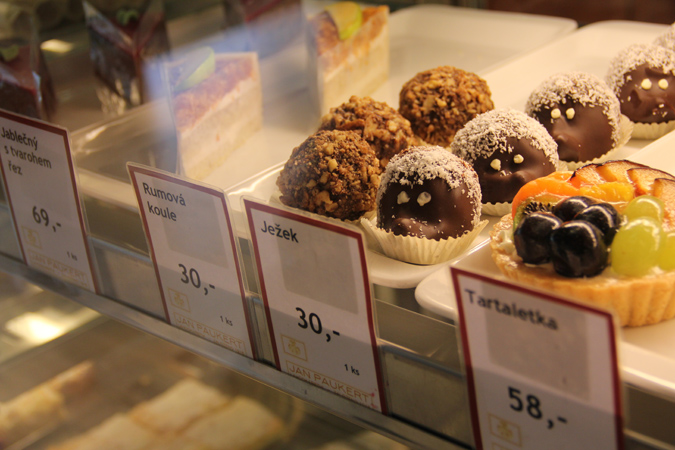
Jan Paukert Lahůdkářství
Národní 981/17
110 00 Praha 1
Opening hours:
Monday-Friday 8:00-20:00
Saturday 10:00-20:00
Sunday 10:00-18:00
Photos by Daniel Zahradníček












 Reading time: 4 minutes
Reading time: 4 minutes 




